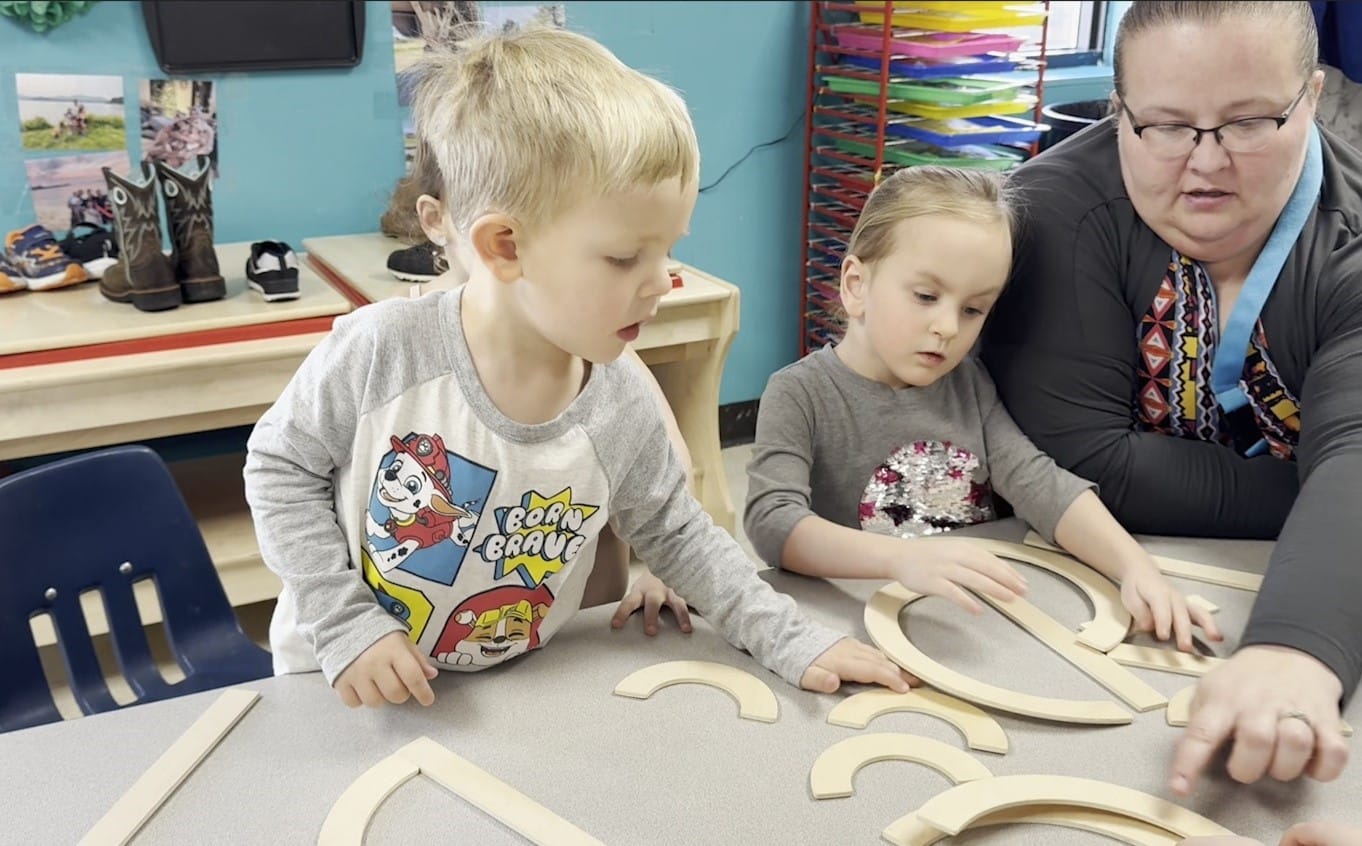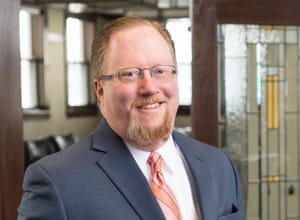Editor's note: This is the fourth in a series of stories on children that Jackie Hendry, producer and host of South Dakota Public Broadcasting's "South Dakota Focus" will write for South Dakota News Watch. Each month, she will preview the show that will air the following week.
SIOUX FALLS, S.D. – Raising a child looks different for every generation. Amy Elliott, chief clinical research officer at Avera Research Institute, understands how quickly new science and research can change ideas that used to be taken for granted. Her research focuses on child health and development.
"For example, drinking during pregnancy," she said. "That's something you don't have to go back too many generations — and that actually may have been something that had been encouraged. Now we know the effects that can have on fetal development, which is why there's the recommendation of no drinking during pregnancy."
In the same way, researchers are uncovering new information about brain development. Even the past five years have uncovered new information, Elliott said.
"We're able to look at the brain, for example, and look at brain development to a much greater degree than we were ever, ever before with those technologies," she explained.
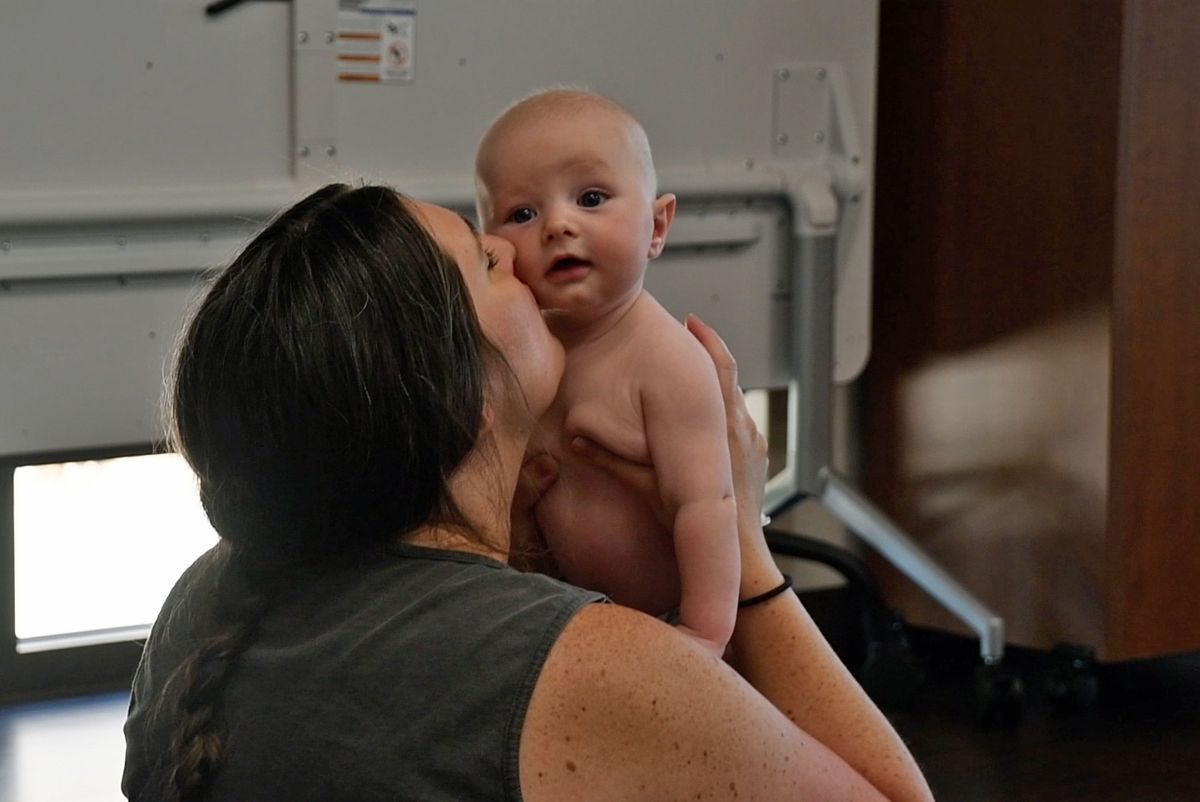
That means researchers have a clearer picture of what parts of the brain develop, when they develop, and how rapidly. Elliott said when a child is born, its brain is about the fourth the size it will be when the child is an adult. By the child's first birthday, the brain will grow to half its eventual size.
"Some have even said in those first three months, the brain is increasing every day at almost a 1% capacity — every day," said Elliott. "Millions of connections being formed in a very short amount of time, much more rapid development than is seen at any other time period in life. So the first year of life and then the first five years are really what we would refer to as very critical time periods for brain development."
For instance, research has determined that the foundations for language development are set in a child's brain by age 3.
"Now you can definitely learn language after that, but it's a lot more difficult," Elliott said. "We know there's a critical time period where different sounds — because different languages have different sounds — are getting integrated within and becoming part of how that brain is wired."
Lifelong learning ability established in early childhood
Elliott expects the next decade of research to demonstrate similar findings for reading, math and social development in children. For now, brain research is catching up with what early childhood educators have known for decades: the earliest years of a child's life can set the tone for lifelong learning outcomes.
State law requires kids are in school by age 6, though families have the option to start kindergarten if their child is 5 by Sept. 1 of the school year. Families might harness the potential of those earlier years through preschool, but South Dakota does not have a state-run or funded preschool program. Aside from federally funded programs like Head Start, privately run early childhood learning programs can vary dramatically in quality.
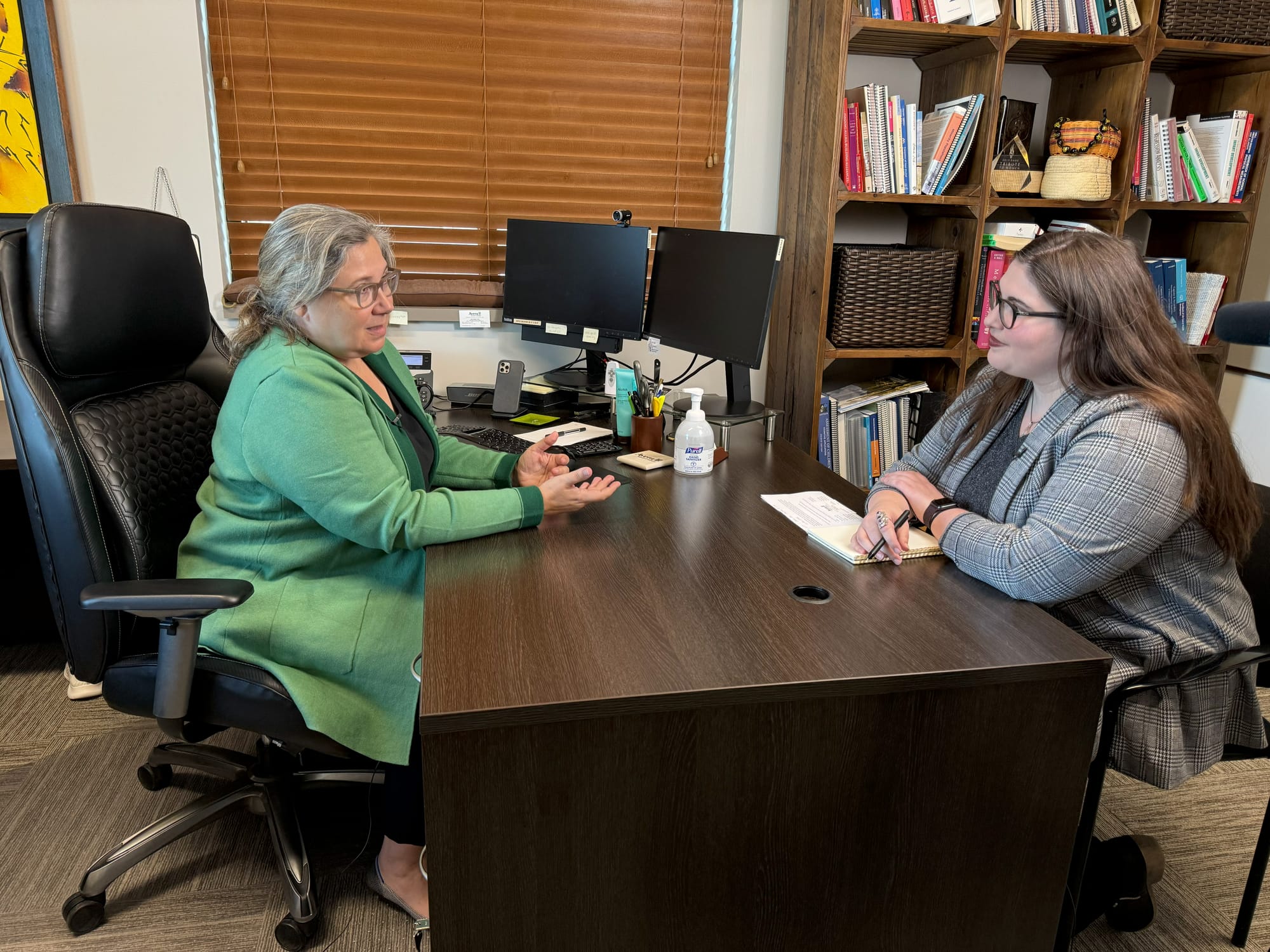
Preschool standards 'really random in South Dakota'
Janessa Bixel is executive director of the South Dakota Association for the Education of Young Children. It's a statewide chapter of a national professional organization that provides resources for early childhood educators, families and communities. She has more than 20 years of experience in early childhood education, including in Head Start programs in various states.
"When you're in Alaska or Kansas or New Hampshire or South Dakota — which are some of the places I've lived — those Head Start standards are the same, basically, in all of those states," she said. "When you get outside of Head Start, it's really random in South Dakota. You can open a preschool and you don't even have to be regulated in any way in the state."
In fact, South Dakota is one of a handful of states in the country without a state-funded program or official standards to measure the quality of private programs. There have been some efforts from groups like the School Administrators of South Dakota to create early learning guides, but they don't hold the weight of regulatory standards.
There are no state-required credentials for preschool teachers either.
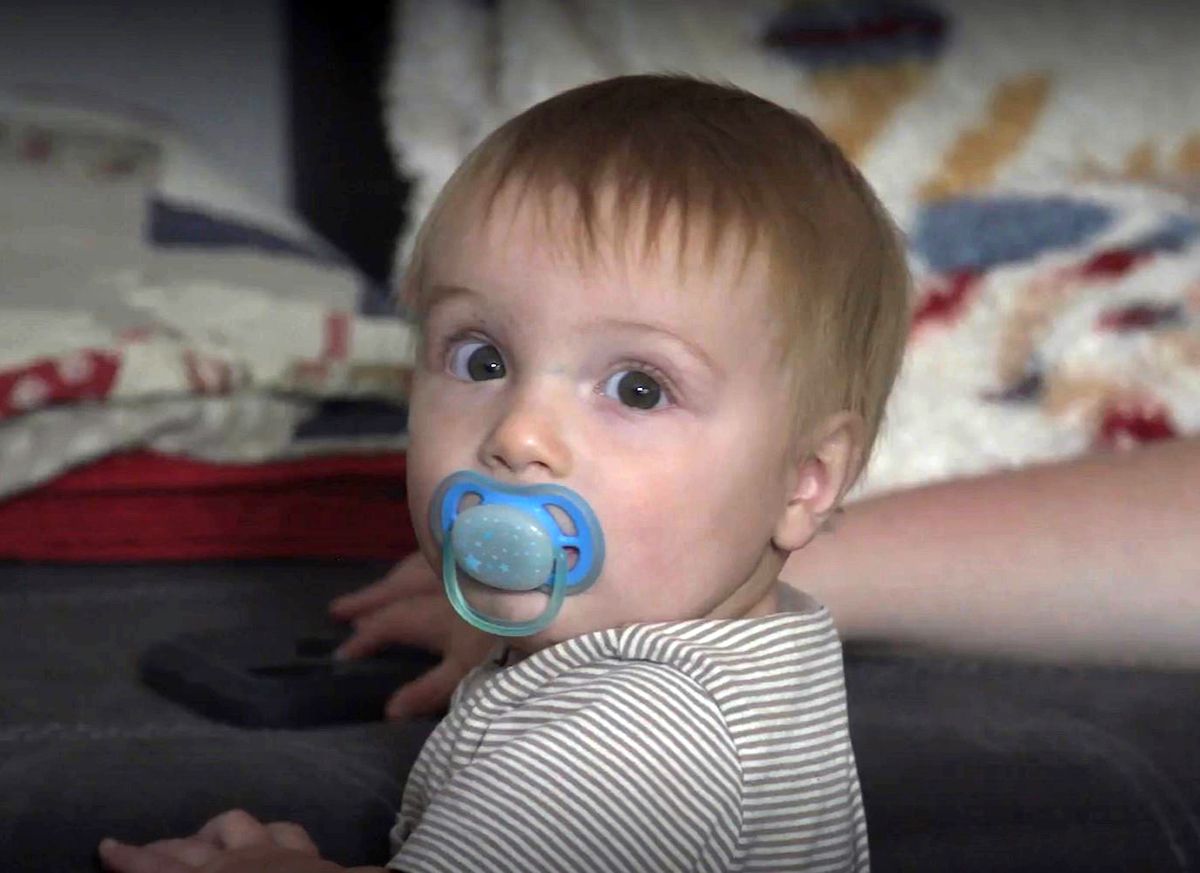
Part of Bixel's work includes expanding opportunities for early learning educators in a state where public policy hasn't caught up with the importance research puts on the field.
"I would love to see an apprenticeship program started in South Dakota for early childhood educators," she said. "There are some states doing that right now and it seems like it could be an untapped area to support this field and really help to elevate it as a profession because it truly is a profession. I mean, we're working with young children when the most brain development happens. So why shouldn't it be required that you need to understand how to work with young children at that time?"

Preschoolers 'need more than just love'
Nicole Weiss believes preschool providers owe families the highest-possible quality care for their children. She's the early learning director for the YMCA of Rapid City. While the state doesn't mandate credentials to teach preschool, her program does.
"Preschool's an interesting time in a kiddo's life because they need more than just love and freedom to roam and learn," she said. "They also don't need to be sitting down with worksheets and having their whole day scheduled out. It takes some education to understand that."
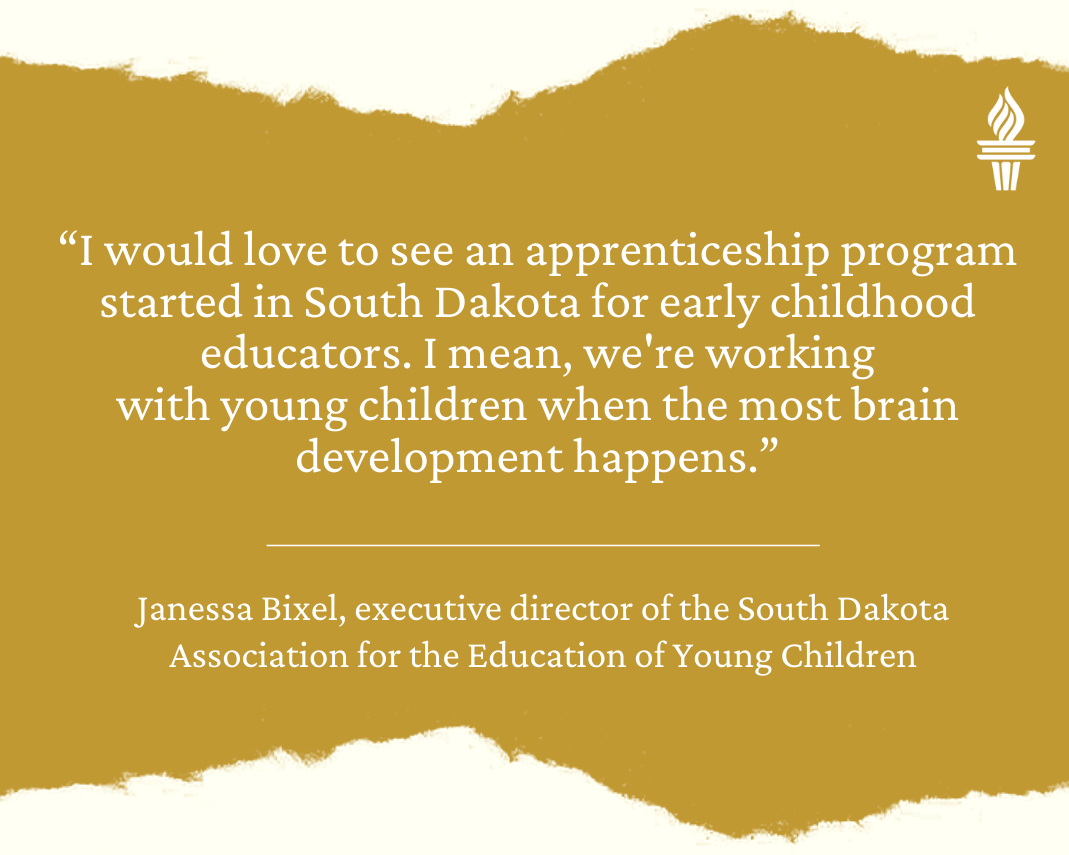
All teachers in Weiss' department must join with at least a Child Development Associate (CDA) credential, a one-year degree.
"They have to have a minimum of that to be a lead teacher in our program," said Weiss.
However, even that minimum education requirement adds a hurdle to ongoing staffing issues.
"There's a lot of people who think because they have worked in child care that, 'I'm a preschool teacher now, I can go do this or that,' and they don't understand the lesson planning and the assessments and the conferences."
The state Department of Social Services contracts with a handful of organizations around the state that offer the CDA credential. One of those is a Rapid City nonprofit called Early Childhood Connections.
"The state of South Dakota supports CDA," said Autumn Gregory, executive director. "Right now they pay for the coursework, they pay for the scholarship, for the assessment and credentialing, and so they are really trying to promote professional development."
But without a state requirement, it's up to private entities to decide what level of training their staff needs.
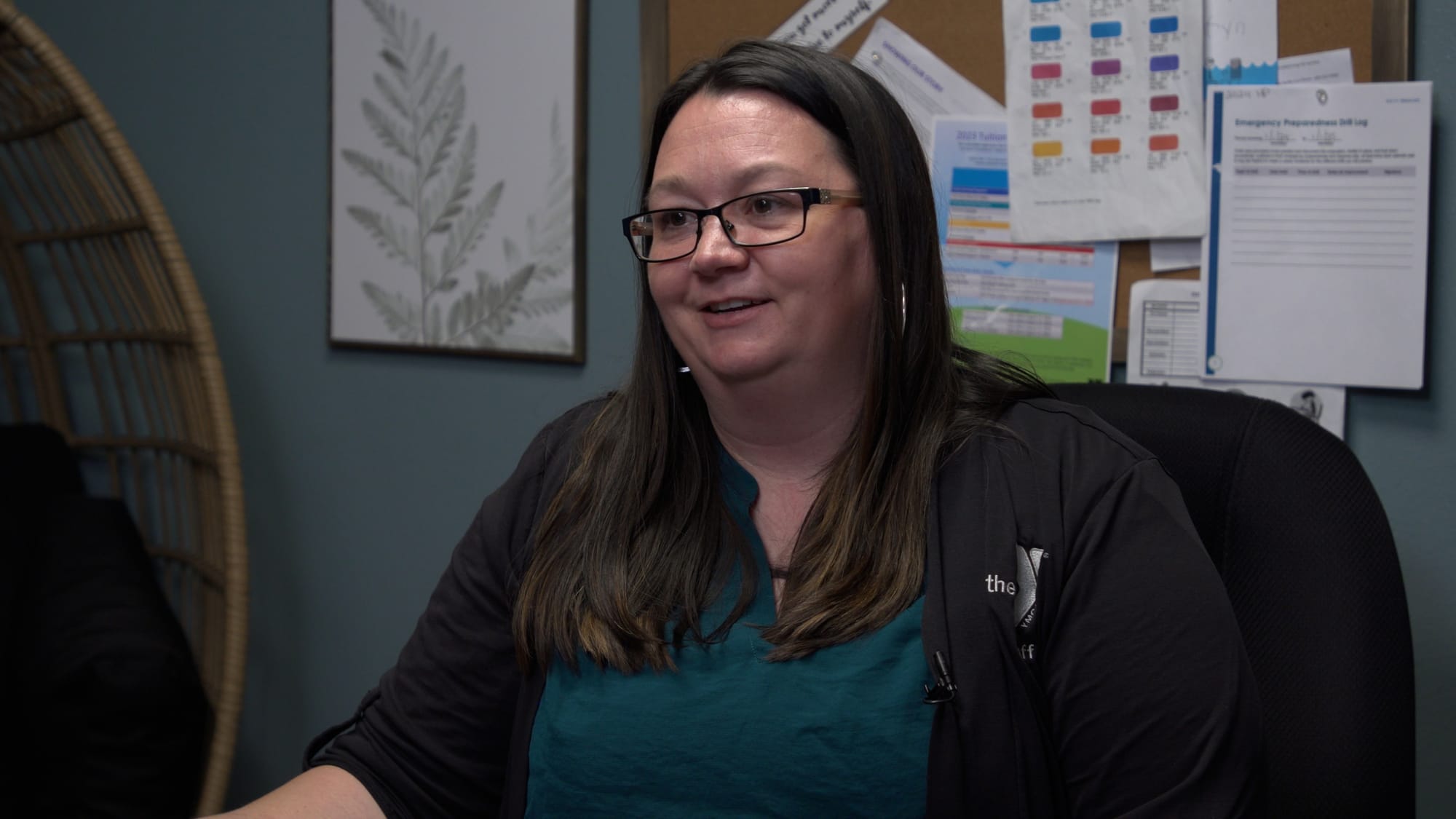
Gregory's organization also administers a program called Starting Strong, a scholarship program funded by the John T. Vucurevich Foundation to allow disadvantaged families the opportunity to afford preschool. The benefits ripple beyond children in the Starting Strong program, she said.
"That kindergarten teacher is going to teach to the child with the most needs because that's where all that attention needs to go," Gregory said. "If those children can come in ready to learn, then it benefits all the children in that kindergarten class."

Elliott, Avera's chief clinical research officer, believes the data show the same benefits to preschool that educators have experienced firsthand.
"Pre-K teaches kids so many things, and sometimes I think the things that are taught — the most important — are on the behavioral side," she said. "There shouldn't be pressure that kids have to be able to read or do those things before school. But it's good for them to be exposed to letters and to colors and to sounds and to like looking at books."
Because research on child development is evolving so rapidly, Elliott understands it can take time for the public — and policy — to catch up. She returns to the example of drinking during pregnancy.
"People will say, 'Well, I think things turned out just fine.' The one thing I would like to say is, that's what science is supposed to do for us. It's supposed to help us raise the next generation better than the previous one."
How to watch 'South Dakota Focus'
The next episode of "South Dakota Focus" airs on Thursday, Dec. 28, at 8 p.m. Central time / 7 p.m. Mountain time. It can be viewed on SDPB-TV 1, Facebook, YouTube and SD.net.
The episode includes:
- Why the John T. Vucurevich Foundation is funding multiple programs to increase access to early childhood education in Rapid City
- A visit to the Fischback Center lab preschool on the South Dakota State University campus in Brookings
- How a preschool partnership helped refugee children in Huron succeed in school

